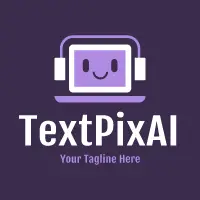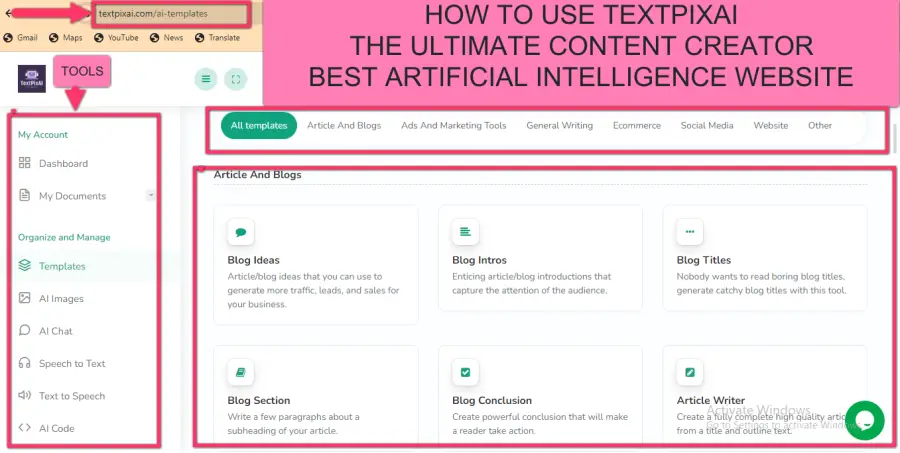AI and Electronic Health Records (EHR) - Healthcare Data Management
Introduction
In an era defined by technological advancements, the healthcare industry stands at the precipice of a transformative change, driven by the convergence of Electronic Health Records (EHRs) and Artificial Intelligence (AI). EHRs have become the backbone of modern healthcare, offering a comprehensive digital repository of patient information. Simultaneously, AI is revolutionizing the way we diagnose, treat, and manage health conditions. This article explores the synergy of AI and EHRs, shedding light on how this amalgamation is revolutionizing healthcare data management and, in turn, enhancing patient care and outcomes.
You may also like to read:
Ethical Issues in AI Healthcare
Understanding Electronic Health Records (EHR)
Electronic Health Records (EHRs), as the name suggests, are digital versions of patients' medical records, designed to make healthcare data more accessible, interoperable, and patient-centric. In essence, EHRs digitize a patient's complete medical history, including diagnoses, treatments, medications, and test results. These records offer several benefits, including streamlined data access and improved care coordination among healthcare providers.
However, the transition from paper-based records to EHRs brought its own set of challenges. Traditional EHR systems often suffered from data overload, inefficiency, and difficulties in retrieving relevant information quickly. This is where AI steps in to revolutionize the landscape.
The Role of Artificial Intelligence (AI) in Healthcare
Artificial Intelligence, a field of computer science that focuses on creating systems capable of performing tasks that typically require human intelligence, is rapidly becoming a cornerstone of modern healthcare. AI encompasses a wide range of technologies, from machine learning and natural language processing to robotics and computer vision. In healthcare, AI has found a myriad of applications, ranging from diagnostics and treatment planning to patient engagement and data management.
AI's ability to process vast amounts of data quickly and accurately makes it an ideal companion for EHRs. It's worth exploring how AI is fundamentally altering the way we leverage EHRs in healthcare.
The Synergy of AI and Electronic Health Records
How AI is Transforming the Way EHRs are Utilized
The marriage of AI and EHRs has unlocked a plethora of possibilities. By integrating AI into EHR systems, healthcare providers can now harness the power of data in ways previously unimaginable.
AI-driven EHRs can efficiently analyze and interpret complex medical data, providing valuable insights to clinicians. These systems can identify patterns, anomalies, and trends that might elude human observation. As a result, healthcare professionals can make more informed decisions, leading to enhanced patient care and improved outcomes.
Benefits of AI-Driven EHR Management
-
Automation: AI can automate mundane administrative tasks, such as data entry and appointment scheduling, allowing healthcare staff to focus on patient care.
-
Data Analysis: AI-powered EHRs can perform real-time analysis of patient data, flagging critical issues and providing decision support to clinicians during patient encounters.
-
Personalization: AI-driven EHRs can tailor treatment plans to individual patients, taking into account their medical history, genetic makeup, and lifestyle factors.
-
Predictive Analytics: AI can predict disease trends, allowing healthcare providers to allocate resources effectively and implement preventive measures.
-
Efficiency: AI reduces the time spent on manual data retrieval, allowing healthcare professionals to access critical patient information quickly.
Real-World Examples of AI Applications in EHR Systems
-
Clinical Decision Support: AI-powered clinical decision support systems (CDSS) can analyze patient data in real time, providing recommendations to physicians for diagnosis and treatment. These systems are particularly valuable in emergency situations.
-
Natural Language Processing (NLP): AI-driven NLP can extract valuable insights from unstructured EHR data, such as clinical notes and narratives. This capability enhances data mining, research, and clinical decision-making.
-
Predictive Analytics for Population Health: AI models can predict disease outbreaks and health trends within specific patient populations, enabling healthcare providers to allocate resources effectively and implement preventive measures.
-
Automated Transcription and Speech Recognition: AI-driven transcription services and speech recognition technology streamline data entry and improve the accuracy of EHR documentation.
-
Sentiment Analysis: NLP-based sentiment analysis can help healthcare providers gauge patient sentiment and satisfaction, leading to improved patient engagement.
AI-Powered Data Extraction and Entry
One of the most significant challenges in EHR management has been the time-consuming process of manual data entry. Clinicians spend a substantial amount of their time documenting patient encounters, which can lead to burnout and reduced face-to-face time with patients. AI addresses this issue by automating data entry through transcription and speech recognition.
AI-powered transcription services can convert spoken words into text rapidly and accurately. Clinicians can dictate their observations, diagnosis, and treatment plans, and AI algorithms transcribe the information directly into the EHR system. This not only saves time but also reduces the risk of errors associated with manual data entry.
Additionally, AI can extract structured and unstructured data from clinical notes and reports, making it accessible for analysis and decision support. By analyzing the wealth of narrative data contained in EHRs, AI can identify critical information that might have otherwise gone unnoticed.
This seamless integration of AI into the data entry and extraction processes not only enhances efficiency but also frees healthcare professionals to focus on patient care, improving the overall quality of healthcare delivery.
Enhancing Clinical Decision Support
One of the most promising aspects of AI in EHRs is its capacity to provide real-time clinical decision support. AI-driven CDSS can analyze patient data as it becomes available, offering valuable insights and recommendations to clinicians during patient encounters.
The benefits of AI-driven clinical decision support are manifold:
-
Real-time Analysis: AI systems can process patient data in real time, identifying potential issues and alerting clinicians to critical information promptly. For example, an AI system can detect drug interactions or allergies, helping clinicians make safer prescribing decisions.
-
Enhanced Diagnosis: AI algorithms can assist in diagnosing complex medical conditions by analyzing a multitude of patient data points simultaneously. This leads to more accurate and timely diagnoses.
-
Personalized Treatment Plans: AI can analyze a patient's medical history, genetic information, and treatment responses to recommend personalized treatment plans. This level of tailoring improves treatment outcomes and reduces adverse events.
-
Reduced Medical Errors: AI systems can cross-reference patient data and best practice guidelines to reduce the likelihood of medical errors. For example, AI can flag potential discrepancies in medication dosages or alert clinicians to missing tests or screenings.
AI-powered clinical decision support augments the expertise of healthcare professionals, ultimately leading to improved patient care and safety.
Predictive Analytics and Population Health Management
AI's data analysis capabilities extend beyond the individual patient level to population health management. Predictive analytics, fueled by AI, enables healthcare providers to forecast disease outbreaks, track health trends, and implement preventive measures.
Utilizing AI to Predict Disease Outbreaks and Trends
In the realm of public health, AI plays a crucial role in predicting disease outbreaks. By analyzing a vast array of data sources, including EHRs, AI algorithms can identify patterns and anomalies that may indicate the emergence of disease clusters.
For instance, during the early stages of the COVID-19 pandemic, AI systems were used to analyze data from EHRs, travel records, and social media to predict the spread of the virus and assess healthcare resource needs. These predictions aided in resource allocation, preparedness, and response planning.
Targeted Interventions for At-Risk Patient Populations
AI-driven population health management allows healthcare providers to identify at-risk patient populations and implement targeted interventions. By analyzing EHR data, AI can pinpoint individuals with specific risk factors or chronic conditions, enabling proactive outreach and personalized care plans.
This approach not only improves patient outcomes but also optimizes resource allocation by focusing resources where they are most needed.
Optimizing Resource Allocation and Healthcare Planning
Healthcare institutions can use AI-powered predictive analytics to optimize resource allocation and healthcare planning. By forecasting patient admission rates, disease prevalence, and healthcare utilization patterns, AI helps hospitals and clinics prepare for fluctuations in demand, allocate staff efficiently, and manage resources effectively.
In summary, AI-driven predictive analytics in conjunction with EHRs empowers healthcare providers with the tools to proactively address public health challenges and deliver targeted, high-quality care.
Natural Language Processing (NLP) and EHRs
The narrative data contained within EHRs, including clinical notes, discharge summaries, and physician-patient interactions, represents a treasure trove of valuable information. However, extracting insights from unstructured text data has traditionally been a labor-intensive process. This is where Natural Language Processing (NLP) steps in as a game-changer.
The Role of NLP in Extracting Insights from Unstructured EHR Data
Natural Language Processing is a subfield of AI that focuses on the interaction between computers and human language. NLP algorithms are trained to understand and interpret human language, enabling them to extract valuable information from unstructured text data.
In the context of EHRs, NLP-driven AI systems can:
-
Extract Structured Information: NLP algorithms can identify and extract structured information from clinical notes, such as patient demographics, diagnoses, medications, and treatment plans. This process transforms unstructured data into a structured format that is more accessible for analysis and reporting.
-
Identify Medical Concepts: NLP can recognize medical concepts and terminologies within clinical narratives. This capability allows for accurate coding, billing, and clinical decision support.
-
Summarize Clinical Narratives: NLP algorithms can generate concise summaries of lengthy clinical narratives, making it easier for healthcare professionals to review patient histories quickly.
-
Sentiment Analysis: NLP can perform sentiment analysis on physician notes to gauge patient sentiment and satisfaction. This information can be valuable for improving patient engagement and addressing concerns promptly.
Applications of NLP in EHRs
-
Improving Clinical Documentation: NLP streamlines the clinical documentation process by automatically capturing relevant information from physician-patient interactions. This reduces the time clinicians spend on manual note-taking and data entry.
-
Enhancing Research and Data Mining: NLP-powered EHRs facilitate research by enabling researchers to extract valuable insights from large volumes of clinical narratives. Researchers can identify trends, associations, and outcomes more efficiently.
-
Clinical Decision Support: NLP algorithms can analyze clinical notes in real time, providing clinicians with relevant information and recommendations during patient encounters. This enhances the quality of clinical decision-making.
-
Billing and Coding Accuracy: NLP ensures the accuracy of billing and coding by identifying and extracting key information for reimbursement purposes. This reduces billing errors and improves revenue cycle management.
The integration of NLP with EHRs not only improves data accessibility but also enhances the utility of narrative data for clinical care, research, and administrative processes.
Privacy and Security Concerns
While the fusion of AI and EHRs holds immense potential for healthcare, it also raises important privacy and security considerations. Protecting patient data is paramount, and AI-enhanced EHR systems must adhere to stringent data privacy standards and regulations, such as the Health Insurance Portability and Accountability Act (HIPAA) in the United States.
Safeguarding Patient Data in AI-Driven EHR Systems
-
Encryption: AI-powered EHRs should use robust encryption protocols to secure patient data during transmission and storage. This ensures that sensitive information remains confidential.
-
Access Controls: EHR systems should implement strict access controls, limiting data access to authorized personnel only. AI algorithms should not compromise the integrity of these controls.
-
Data Anonymization: AI systems should be capable of anonymizing patient data when necessary for research and analysis, preventing the identification of individual patients.
Compliance with Healthcare Regulations (e.g., HIPAA) in AI-Enhanced EHRs
AI-enhanced EHR systems must comply with healthcare regulations specific to data privacy and security. For example, in the United States, healthcare organizations must adhere to HIPAA regulations, which include:
-
Data Security Standards: Implementing measures to protect electronic protected health information (ePHI) from unauthorized access, disclosure, and alteration.
-
Privacy Rule: Ensuring that patient privacy rights are upheld, including the right to access their own health information and be informed about how their data is used.
-
Breach Notification: Promptly notifying affected individuals and relevant authorities in the event of a data breach.
-
Data Retention and Disposal: Safely retaining and disposing of patient data in accordance with HIPAA requirements.
Ethical considerations also play a pivotal role in ensuring the responsible use of AI in EHRs. Transparency regarding data usage and consent for data sharing are crucial ethical principles that must be upheld.
Challenges and Future Directions
While the integration of AI and EHRs offers tremendous potential, it is not without its challenges. Some of these challenges include:
-
Data Quality: The accuracy and completeness of EHR data can vary, which may impact the performance of AI algorithms that rely on this data.
-
Interoperability: Achieving interoperability between different EHR systems and AI applications remains a challenge, as data standards and formats vary.
-
Bias Mitigation: AI algorithms can inherit biases present in the data they are trained on. Efforts must be made to identify and mitigate biases, especially when AI is used in decision-making.
-
Ethical Use of Data: Striking the right balance between leveraging patient data for the benefit of healthcare and respecting patient privacy and autonomy is an ongoing ethical challenge.
The future of AI and EHRs promises continued innovation and evolution. AI will likely play an even more significant role in patient care, diagnosis, and healthcare management. Addressing these challenges and ethical considerations will be paramount to realizing the full potential of AI in healthcare.
Case Studies and Success Stories
To illustrate the real-world impact of AI and EHR integration, let's explore a few case studies and success stories from healthcare institutions that have successfully implemented AI-enhanced EHR systems.
Case Study 1: Predictive Analytics for Early Disease Detection
Scenario: A large healthcare system in a metropolitan area implemented AI-driven predictive analytics in its EHR system to identify patients at risk of developing chronic diseases, such as diabetes and hypertension.
Results: By analyzing EHR data, including patient demographics, lab results, and medical history, the AI system successfully identified at-risk individuals. Healthcare providers received alerts and recommendations for proactive interventions, such as lifestyle modifications and preventive screenings. As a result, the healthcare system saw a significant reduction in disease progression and hospital admissions among the identified patient population.
Case Study 2: AI-Powered Clinical Documentation
Scenario: A regional hospital implemented AI-powered transcription and speech recognition technology in its EHR system to automate clinical documentation.
Results: Clinicians reported a substantial reduction in the time spent on manual data entry and note-taking. The AI system accurately transcribed spoken words into text, improving the accuracy of EHR documentation. With more time available for patient care, healthcare professionals reported higher job satisfaction and improved patient interactions.
Case Study 3: NLP-Enhanced Clinical Decision Support
Scenario: An academic medical center integrated NLP technology into its EHR system to enhance clinical decision support.
Results: The NLP system analyzed clinical notes in real time, extracting critical patient information and providing relevant insights to clinicians during patient encounters. Clinicians reported improved diagnostic accuracy and treatment planning. The hospital also observed a reduction in medical errors and adverse events.
These case studies demonstrate the tangible benefits of AI-powered EHR systems in healthcare settings. They underscore the potential for AI to enhance patient care, streamline workflows, and improve overall healthcare outcomes.
Conclusion
The integration of Artificial Intelligence (AI) with Electronic Health Records (EHRs) marks a pivotal moment in the evolution of healthcare data management. This fusion promises to revolutionize patient care, diagnosis, and healthcare resource allocation. AI-driven EHRs can streamline data entry, enhance clinical decision support, and offer predictive analytics for population health management.
However, with great power comes great responsibility. The responsible use of AI in healthcare requires a steadfast commitment to patient data privacy, ethical considerations, and bias mitigation. Healthcare institutions should establish continuous monitoring and auditing mechanisms to assess the performance and ethical implications of AI systems. Regular evaluations can help identify and rectify issues promptly.
As AI technology continues to advance, its ethical considerations will evolve as well. Emerging technologies, such as AI-powered robotics, telemedicine, and genomics, introduce unique ethical challenges that require proactive management. AI has the potential to improve ethical healthcare practices by enhancing diagnostic accuracy, reducing errors, and streamlining resource allocation. These ethical principles should extend to the research and development phase, ensuring that innovation aligns with patient welfare and societal values.
AI in healthcare offers unprecedented opportunities to enhance patient care, improve outcomes, and increase the efficiency of healthcare systems. However, these advancements must be accompanied by rigorous ethical considerations to protect patient autonomy, privacy, and well-being.
The ethical challenges discussed here—ranging from informed consent to data privacy and bias mitigation—underscore the need for a robust ethical framework to guide the integration of AI into healthcare. By fostering transparency, accountability, and fairness, we can harness the power of AI to benefit patients while upholding the highest ethical standards.
As AI technology continues to evolve, so too must our commitment to navigating its complexities with a steadfast dedication to ethical healthcare practices.
References
-
"Ethical Considerations for AI in Healthcare" - The New England Journal of Medicine Read more
-
"Artificial Intelligence in Health Care: Anticipating Challenges to Ethics" - JAMA Network Read more
-
"Algorithmic Bias Detection and Mitigation: Best Practices and Policies to Reduce Consumer Harms" - Federal Trade Commission Read more
-
"Transforming Health Care Through Artificial Intelligence" - Health Affairs Read more







